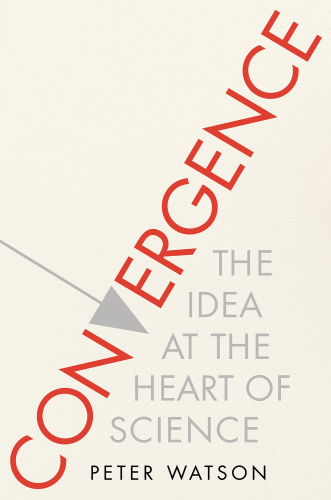
Convergence
The Idea at the Heart of Science
- اطلاعات
- نقد و بررسی
- دیدگاه کاربران
نقد و بررسی

January 2, 2017
In this massive tour de force, British intellectual historian Watson (The Age of Atheists) traces the rise of modern science from 1850 to the 21st century. He aims to demonstrate that what began as disparate studies started to converge on “one overwhelming interlocking coherent story: the history of the universe.” Watson asserts that this “deep coherence” is “at the very root of reality” and calls the unity it reflects the “final mystery.” While demonstrating the power of scientific reductionism, Watson is careful to recognize that “emergence,” the natural ordering of a complex system that yields patterns not present in its constituent parts, also plays an important role in how the universe is structured. Watson begins his journey by looking at the physicists of the 19th century who tied mathematics and physics together to create the idea of thermodynamics. He then explores the paradigm-breaking work of Charles Darwin. Watson does this well, though he doesn’t offer much new information. Then he delves into quantum mechanics and molecular biology, explaining their antecedents and demonstrating how advances in one field yielded breakthroughs in another. Bringing in ideas from geology, mythology, psychology, economics, and more to investigate the origins of civilization, Watson persuasively presents a deep and challenging idea. Agent: Robin Straus, Robin Straus Agency.

Starred review from December 15, 2016
The journalist and polymath delivers a delightful exploration of "the deepest idea in the universe." Intellectual historian Watson loves big ideas and long books, and publishers keep publishing them and buyers buying them because they're great reading--no exception here. After 600 pages of The Great Divide: Nature and Human Nature in the Old World and the New (2012), his new book takes on the history of scientific pursuits in just under 500 pages. Passing lightly over its history before the 19th century, the author maintains that discoveries of the conservation of energy and Darwinian evolution in the 1850s began a great convergence where the sheer mass of scientific knowledge has begun "to invade other areas, other systems of knowledge traditionally different from or even opposed to science, and is starting to explain--and advance--them. Science is...bringing order to philosophy, to morality, to history, to culture in general, and even to politics." The "soft" sciences--i.e., psychology, economics, sociology--are growing "hard." Ethologists studying animals have quantified the devastating effects of defective parental care, and child psychologists, formerly dependent on Freud, have taken note. Today, physicists advise investors, and historians and politicians ignore science at their peril--but do it anyway. The origin of life itself has moved from a hypothesis featuring implausible chemical reactions in ancient pools to a matter of convergence. Watson argues that life, as well as consciousness, culture, even morality, may be inevitable under certain conditions. Accepted in the scientific community, convergence remains controversial among philosophers, literary critics, and some sociologists who claim that scientific knowledge is overrated, culturally determined, and only one of many ways to describe reality. Those who reject the idea of convergence outright may not get far in this book, but readers with no objection to a sweeping, entirely fascinating history of science during the last 200 years will find an abundance of enlightening material.
COPYRIGHT(2016) Kirkus Reviews, ALL RIGHTS RESERVED.




دیدگاه کاربران